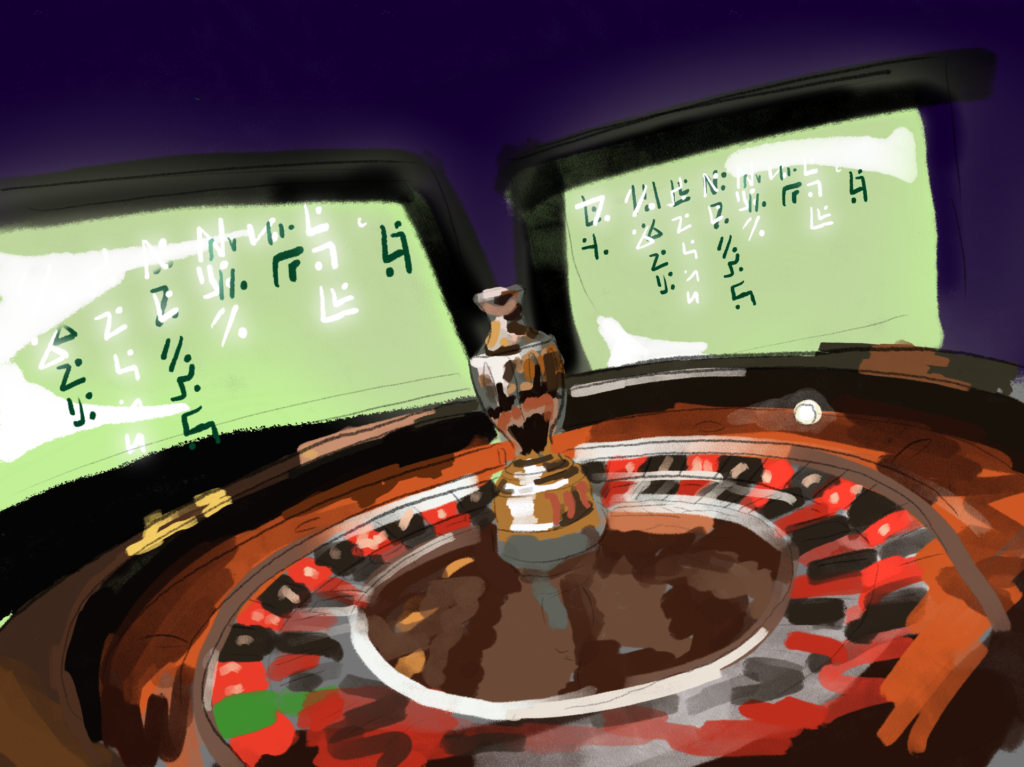
By Arjun Pathy ’25
Shrouded behind claims of increased tax revenues and improved consumer protection lies the fight to spread one of America’s dirtiest industries: online gambling. Since a series of legislative changes in 2007 that officially codified online gambling, the the industry ballooned to $93 billion in 2023.
Our attention has been focused on legalization’s positive effects: a larger governmental revenue base and better public services. However, an examination beyond the politicized gibberish reveals an economic, public health, and illegal wagering crisis that will fester as long as online casinos exist.
Online gambling is currently legal in 34 states and en route to being approved in many more. This meteoric rise is not the result of fair competition and regulated growth, but rather a strategic lobbying effort funded by an industry pushing a fundamentally false narrative.
However, the widely accessible nature of the internet has rendered hopes of a controlled and beneficial online gambling industry useless. Despite an age restriction accompanying legalization, there is no way to prevent adults from serving as intermediaries between minors and their desired bets. We now find ourselves in a situation where gambling addictions are starting at concerningly young ages, exacerbating an already acute public health crisis.
Online gambling has also worsened existing socioeconomic issues, only driving the wealth gap further apart. On the surface, a highly taxed industry such as online gambling would serve as a means of wealth redistribution. As gambling became a dependency rather than a leisure activity, it has left more money in the hands of the wealthy and less in the hands of the poor.
Perhaps the most worrying element of this issue is the controlled narrative surrounding the conversation around legalization. Often taking the form of ballot measures voted upon in general elections, it would seem that online gambling legislation is presented fairly to the public. However, with their vast resources, online casinos sponsor musicians, YouTubers, and television segments to promote themselves while simultaneously buying lobbying power in state governments. Thus, online casinos have created an effective multilateral approach to advancing their interests.
As a result of this information landscape, instead of being relegated to adults over the age of 21, online gambling is now reaching the broader population through social media and the press. This democratization of gambling has encouraged the work of illegal middlemen and primed the next generation to be strife with betting addictions. Online casinos have neglected regulations on advertisement, with the only condition being a small disclaimer providing addiction resources. Not only does this fail to create meaningful change for those in need of treatment, but it also detracts from the fight for healthy wagering by presenting gambling’s dangers only after enticing prospective customers.
One thing is clear: regulation hasn’t worked and the only logical step moving forward is to rescind online gambling licenses. As long as we sit back while casinos allure generation after generation into an industry as detrimental as online gambling, we are all but ensuring a future defined by prosperity for the few and hardship for the rest.




